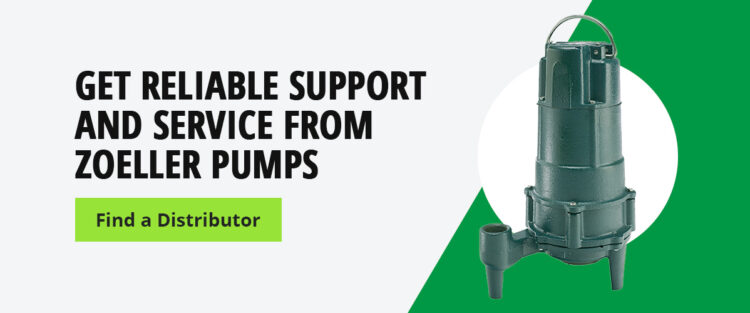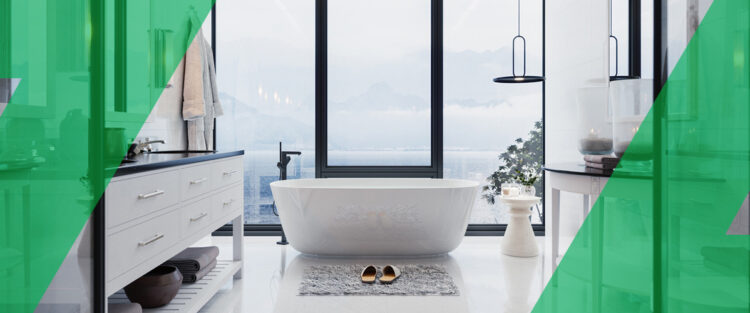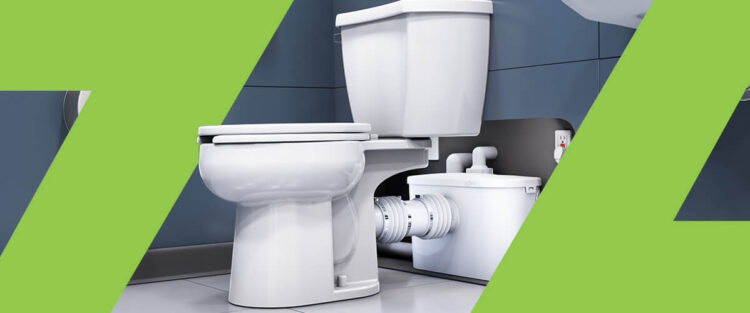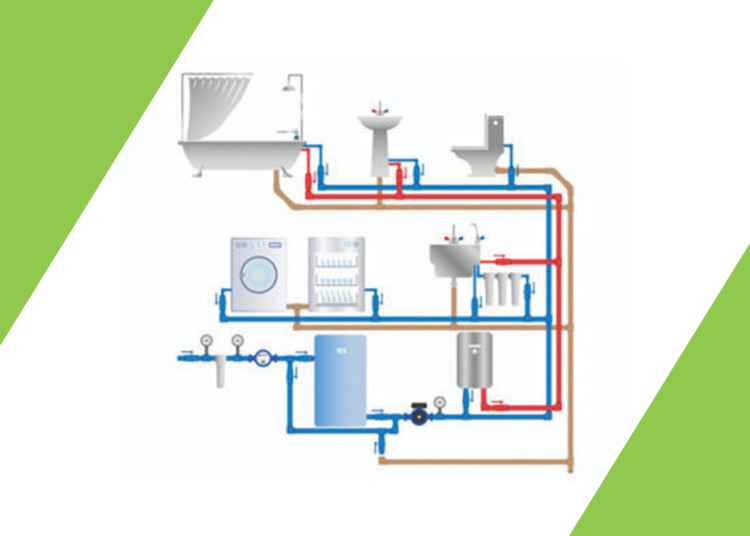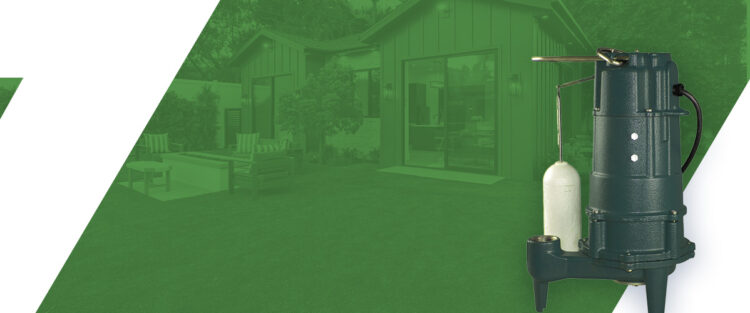Buying quality pumps is just the first part of a successful wastewater handling plan. Even high-quality pumps like Zoeller products need preventive maintenance to keep running as expected. Whether you’re working with hazardous-duty pumps or basement sump systems, a little upkeep goes a long way.
8 Ways to Keep Your Pumps in Great Condition
Contractors and distributors know how frustrating equipment failures can be. Malfunctions and failures delay a project, costing time and money. That’s why sticking to a maintenance schedule is essential for long-lasting pump performance. You can get the most out of your Zoeller equipment with the right contractor maintenance tips.
1. Inspect Pumps Regularly
Regular pump inspections are critical for any maintenance list. Make it a habit to inspect equipment regularly to avoid surprises. Look for common issues like intake debris, seal leaks, or wear. Are there any unusual noises or vibrations? There might be internal damage.
Contractors managing multiple sites should prioritize the most high-demand systems first. Keep your projects moving smoothly with regular check-ins.
2. Test Float Switches
Float switches play a critical role in automating pump operations. Contractors managing sewage lift stations or sump systems need to test float switches to prevent problems. A malfunctioning float switch can lead to flooding and pump cycling, wasting energy. The longer the problem persists, the more wear systems will see.
Test each float switch during inspections. Manually lift the switch to make sure it properly activates and deactivates. If you notice any sticking or poor performance, try cleaning the switch mechanism. Check for alignment issues, too. Regular testing ensures the pump is always ready to go.
3. Clean Impellers and Seals
Pump components need to be kept clean to protect their efficiency. Pump impellers and seals are prone to grease, sediment, or debris clogs. Regular cleaning prevents buildup, protecting pumps from overheating or reduced flow rates.
Contractors working in areas with wastewater or sludge should clean more frequently to fight heavy buildup. You can also use intake screens or strainers on some pumps to reduce the risks of clogs. A clean system means better reliability.
4. Watch Flow Rates
Flow rates can tell you a lot about how a pump system is performing. Contractors should monitor pump output consistently to ensure proper operation.
Compare the current flow rates to initial readings. If you find a noticeable drop in performance, there might be a blockage, impeller damage, or other system issue.
5. Check Electrical Connections
Electrical failures are a common reason for pump downtime. Delays caused by power issues can set your team back, halting the project.
Make sure you’re safely checking wiring and power supplies for electrical problems. If you see any fraying, loose connections, or corrosion, you need to address the issue immediately.
Is the pump receiving consistent voltage? Are the circuit breakers working properly? It’s critical to check these areas when inspecting pumps. If you’re working on wet sites, always ensure the electrical components have moisture protection.
6. Replace Worn Components

With tight deadlines and budgets, contractors often push their equipment to its limits. While wear is inevitable in the industry, you must stay on top of worn components.
Make sure to replace seals, gaskets, and bearings as the manufacturer recommends. Replacing during downtime helps you avoid unexpected failures. Always use Zoeller-approved replacement parts to ensure compatibility and maintain your warranty.
7. Maintain Ventilation
Pumps are often in confined areas like crawl spaces or pump pits. Make sure pumps and equipment have proper ventilation, especially if they’re handling heavy loads. Poor ventilation can lead to overheating and motor damage. Contractors should ventilate the area and clean components when they see build up.
8. Protect Against Power Surges
Contractors often work in spaces with unstable electrical systems. Use surge protectors to protect pumps from sudden voltage spikes. If your equipment experiences a power surge, it could damage the motors or other internal components.
If you work at a site that often experiences power outages, consider investing in a backup power system. These systems keep your pumps working during outages so projects can proceed.
Best Practices for Maintaining Zoeller Pumps
Preventive pump maintenance isn’t just about keeping your Zoeller pumps running — it’s about staying on schedule and ensuring project success. Adopting a proactive approach keeps your equipment working effectively, even in the toughest conditions. Follow these best practices to get the most out of your equipment:
- Use approved parts: Using manufacturer-approved parts is a simple way to maintain your pumps. Cutting costs with off-brand components can lead to voided warranties and reduced efficiency. Choose OEM parts designed for your pumps to ensure good operation.
- Stick to a schedule: Follow the manufacturer’s guide to create a maintenance schedule. Stay on top of your routine to make sure there are no major issues. If you find any issues, fix the pump or have it serviced to keep your project on schedule.
- Keep a log: Log all maintenance. Record inspections, cleanings, repairs, and replacements for a complete equipment care record. Documentation lets you spot repeat issues while keeping everyone on the same page for equipment.
- Train your crew: Contractors often work with teams with different skill levels. Make sure the crew knows how to perform daily inspections and maintain equipment. Tell them how to recognize common issues so everyone is on the lookout. A well-trained team can address small issues before they escalate, keeping projects on track.
- Watch conditions: The surrounding environment can affect pump operation. Monitor the area’s temperature, pressure, and substances. Is there extreme heat or significant chemical exposure? You should control these conditions to reduce the strain on your pumps.
- Use protective gear: Anyone servicing sump pumps needs rubber boots, goggles, and rubber gloves. This equipment protects you from harm and unsanitary fluids.
Get Reliable Support and Service From Zoeller Pumps
Preventive maintenance is essential for good pump operation — but reliable performance starts with quality you can trust.
Zoeller Pump has been a leader in wastewater and stormwater management for over 80 years. If you need assistance post-purchase, browse our product support information or use our service locator to get quality repairs or maintenance from a trusted technician. We can help you get your Zoeller pump back in working order.
In need of a new replacement pump? We offer high-quality parts made in the USA using 95% U.S. content. Whether you need to move water from a basement or manage wastewater with a sewage lift system, we can help.
Equip your next project with dependable pumps. Find a trusted Zoeller Pump source near you and see why contractors put their trust in Zoeller Pump Company.
